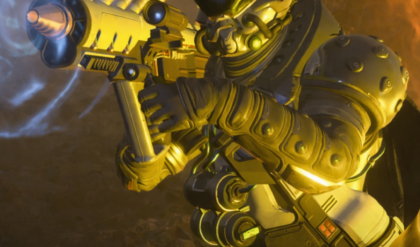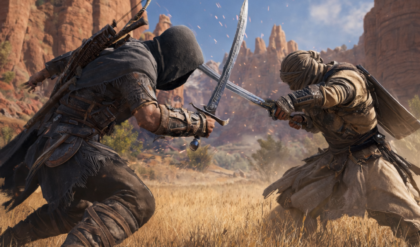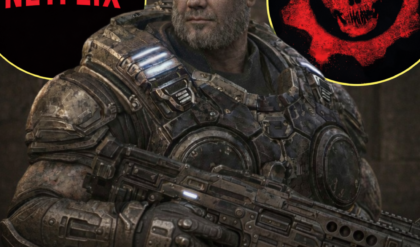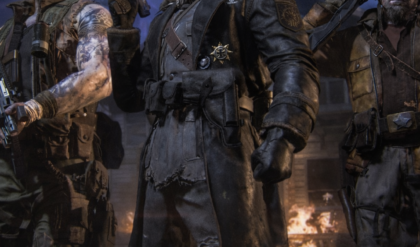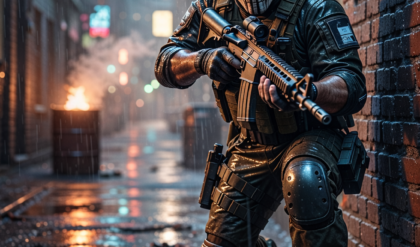The gaming industry has come a long way since its scrappy beginnings, with today’s AAA titles boasting budgets in the hundreds of millions and development teams numbering in the thousands. Yet, amid this era of sprawling open worlds and live-service behemoths, the developers of Phantom Blade Zero have issued a striking call to action: they want to take game development back to the creativity and passion of the PlayStation 1 (PS1) era. This intriguing stance, revealed in an interview on March 26, 2025, has ignited excitement and curiosity among gamers and industry observers. As of March 27, 2025, let’s explore what S-Game, the Chinese studio behind this upcoming PS5 and PC action RPG, means by this nostalgic vision, why it’s significant, and how it could shape Phantom Blade Zero—and potentially the future of gaming.
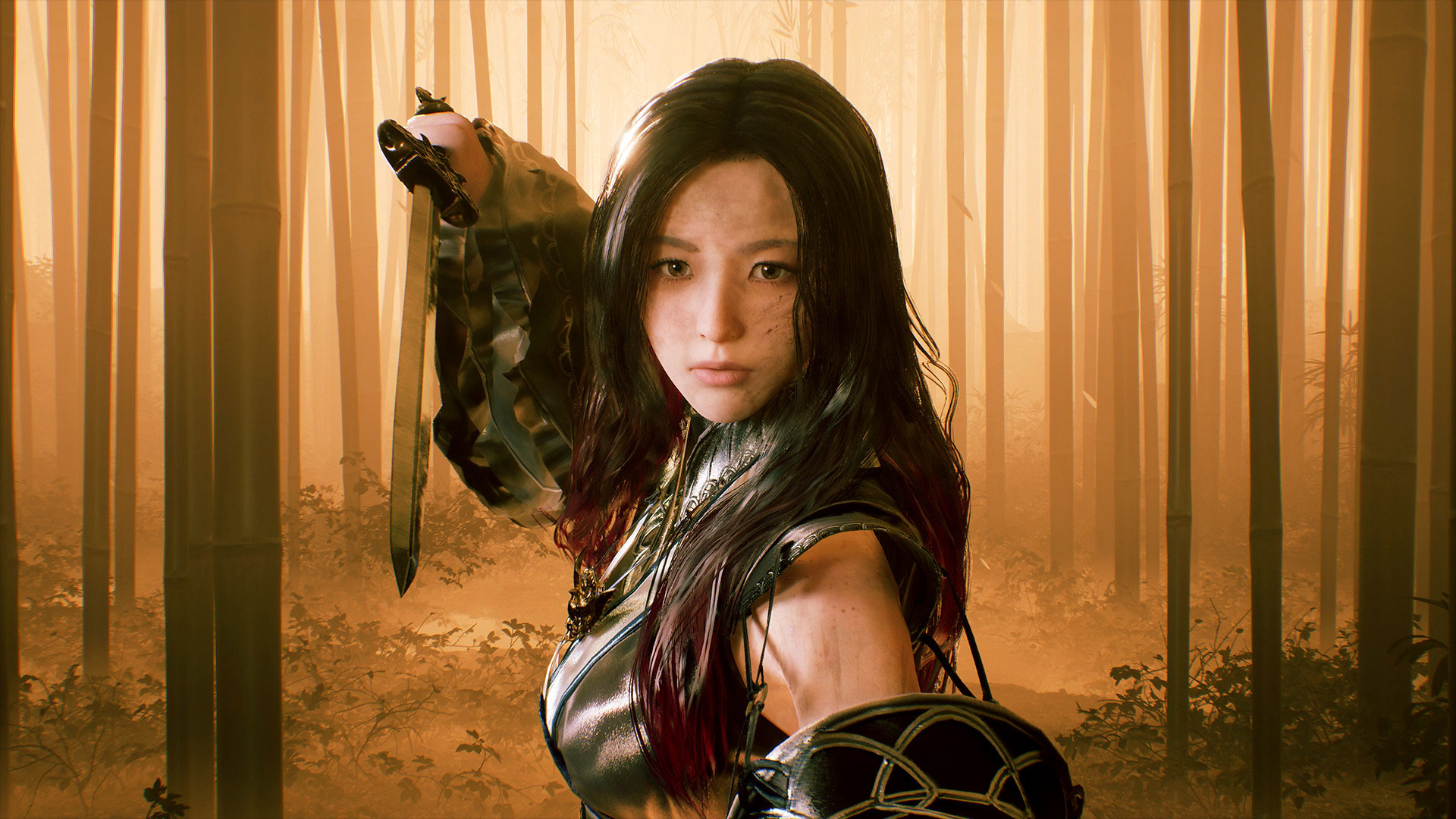
The Statement That Turned Heads
The revelation came during a GDC 2025 interview with Soulframe Liang, founder of S-Game, the Beijing-based studio crafting Phantom Blade Zero. Speaking to Eurogamer, Liang expressed a yearning for a simpler, more inspired time: “We want to get back to the PlayStation 1 and PlayStation 2 era, when the games were not so big, the budgets not sky high, the team manageable, and all the developers were passionate and creative.” This isn’t mere sentimentality—it’s a deliberate design philosophy. S-Game aims to infuse the spirit of the PS1 era into a modern title, merging high-energy martial arts combat with a scope that prioritizes ingenuity over excess. With Phantom Blade Zero eyeing a 2026 release, this approach could carve a unique niche in an industry often criticized for playing it safe with formulaic blockbusters.
The PS1 era (1994–2000) is revered as a golden age of gaming innovation. Titles like Final Fantasy VII, Metal Gear Solid, and Resident Evil redefined their genres with modest budgets—FFVII cost around $40 million, a far cry from GTA V’s $265 million—and teams of 50 to 100 developers. Creativity flourished under these constraints, producing classics that still resonate today. S-Game’s nod to this period isn’t about mimicking retro graphics or clunky controls; it’s about reclaiming that raw, unfiltered passion and manageable scale, a bold contrast to the modern AAA landscape.
Why the PS1 Era? A Creative Haven
The PS1 and early PS2 eras (extending into the 2000s) were a playground for experimentation. Developers, free from today’s astronomical financial pressures, took daring risks. Silent Hill used fog to mask hardware limitations while weaving psychological horror, and Devil May Cry birthed stylish action on a shoestring budget. Teams were lean—Resident Evil’s core crew hovered below 50—enabling quick decisions and bold ideas. Budgets, often in the single-digit millions, demanded ingenuity over polish, a dynamic Liang clearly cherishes. “The games were not so big, the budgets not sky high,” he said, critiquing how today’s $200 million-plus projects like Cyberpunk 2077 often sacrifice soul for scale.
Modern gaming faces what former PlayStation boss Shawn Layden called a “collapse of creativity” in a 2024 GameSpot interview. Soaring costs—Starfield reportedly hit $400 million—push studios toward safe bets like sequels and live-service grinds. S-Game’s PS1-inspired ethos taps into a growing desire for smaller, passion-fueled projects that prioritize vision over profit. Recent successes like Astro Bot (2024), a $50 million PS5 gem with a tight team, prove this approach can outshine bloated flops like Concord ($100M+), which crashed despite its scale. Phantom Blade Zero aims to follow this path, blending AAA polish with indie heart.
Phantom Blade Zero: The Vision
Unveiled at the 2023 PlayStation Showcase, Phantom Blade Zero is a “kung fu punk” action RPG fusing Chinese martial arts, steampunk, and dark fantasy. Drawing from Devil May Cry, Dark Souls, and Resident Evil 4, it promises fast-paced combat, intricate levels, and a semi-open “Phantom World” steeped in Ming Dynasty aesthetics. Liang describes it as “a bigger indie game, but with budget and experience,” targeting 20–30 hours of playtime—akin to PS1 classics like Final Fantasy IX (30–40 hours) rather than sprawling 100-hour epics like Elden Ring.
The PS1 influence is evident in its scope. Instead of a single, resource-draining open world—a hallmark of modern AAA titles—S-Game opts for “multiple maps of reasonable size, handcrafted and populated with diverse activities.” This echoes Resident Evil 2’s compact Raccoon City or Metal Gear Solid’s Shadow Moses—focused yet immersive. With a team reportedly under 100, S-Game keeps development “manageable,” avoiding the 1,000-plus headcounts of studios like Rockstar. Their budget, estimated at $55 million (IGN, 2023), is substantial for an indie but a fraction of AAA norms, mirroring the PS1’s lean efficiency.
Combat also harkens back. Built on S-Game’s mobile expertise from titles like Phantom Blade: Executioners, the system features “elaborate chains of moves” streamlined for controllers, minimizing button-mashing—a tweak perfected for accessibility. Action director Kenji Tanigaki, a Hong Kong kung fu film veteran, brings motion-captured flair, evoking Onimusha’s cinematic roots. It’s a throwback to the PS1/PS2 ethos: deep yet approachable, creative yet restrained.
Why It Matters: A Pushback Against Modern Trends
S-Game’s stance lands amid industry introspection. Black Myth: Wukong’s 2024 triumph—30 million copies sold in six months (GamingBolt)—showed Chinese studios can compete globally, but its $70 million budget still outpaced PS1 norms. Liang sees this as inspiration: “Everyone now realizes there’s potential for a Chinese-made game,” yet he resists chasing that scale. Modern AAA struggles—layoffs at Bungie, Ubisoft’s Assassin’s Creed bloat—stem from unsustainable growth. S-Game’s PS1-inspired model offers a counterpoint: prioritize passion over profit, creativity over checklists.
This resonates widely. Posts on X (@Genki_JPN, March 25) praise the intent: “Phantom Blade Zero wants to take things back to the PS1/PS2 era… when developers were passionate and creative.” Outlets like Push Square (March 25) call it a “stunner,” applauding its rejection of “sky-high budgets.” The sentiment taps nostalgia for when games felt like art, not corporate products—a critique echoed by Layden’s push for shorter, riskier titles (GameSpot, 2020).
Challenges and Risks
Reviving PS1 creativity isn’t easy. Modern gamers demand polish—Cyberpunk’s buggy launch sank its hype despite a $330 million budget. S-Game’s modest resources could stumble under such expectations, especially as a console debut after mobile roots. Phantom Blade Zero’s trailers impress, but some (Push Square, 2023) question if gameplay matches the cinematic sheen—a PS1-era trap where ambition outstripped tech. A 2026 release offers refinement time, but fan hype, boosted by Wukong’s success, sets a high bar.
The “bigger indie” tag carries risks too. Hellblade (2017) nailed this with a $10 million budget and 20-person team, but Concord’s $100 million indie-esque flop proves scale isn’t enough. S-Game must ace execution—combat flow, level design, story—to validate PS1 ideals in 2026. Still, their passion shines: “We inspire each other… like the Golden Age of PS1,” Liang told IGN (2023), a vibe rare in corporate studios.
The Bigger Picture: A Ripple Effect?
If Phantom Blade Zero hits, it could spark a movement. Stellar Blade (2024) rewarded its Shift Up team with PS5 Pros and $3,400 bonuses (GamesRadar), proving mid-budget successes pay—its $40 million cost trounced Concord’s failure. S-Game’s $55 million, 100-dev, PS1-vibe approach mirrors this: sustainable yet ambitious. A win might nudge AAA giants to rethink excess, aligning with Layden’s call for “12–15 hour games” over 100-hour slogs. In a year where Marvel’s Doomsday pivots to Doom, S-Game’s restraint could teach restraint’s value.
Fans are all in. X posts (@NoisyPixelNews, March 26) laud the “PS1 & PS2 era game design” ethos, while expectations for Chinese devs soar post-Wukong. A hit could solidify China’s rise alongside Japan and the West, proving creativity beats cash.
Conclusion: A Nostalgic Revolution?
As of March 27, 2025, S-Game’s push to “go back to PS1 era creativity” is more than nostalgia—it’s a manifesto. Phantom Blade Zero fuses modern tech with old-school soul, aiming to show passion and manageable teams can outshine bloated budgets. In an industry grappling with rising costs and fading originality, this kung fu epic could light the way—proving the PS1’s spirit still kicks. Whether Sadie Sink’s Spider-Man 4 role or Doom’s MCU reign grabs headlines, S-Game’s gamble might redefine “AAA.” Will it land? 2026 will tell—but for now, the gaming web’s buzzing with hope.
